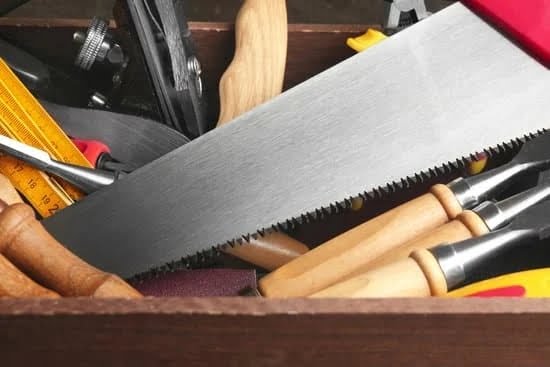Introduction
Having a well-organized woodworking shop storage space is essential to an efficient and successful woodworking project. With all the necessary tools, materials, and supplies, it’s important that each is stored in a way that makes them easily accessible and easy to identify when needed. Having an organized workshop allows for everything to be kept in its proper place so both the tools, materials, and supplies can be found quickly – reducing time spent searching for items and wasted motion throughout the work area. This can help to streamline projects, improve efficiency, and ultimately save time. Additionally, having all items properly stored minimizes risk of accidents or damage from improper use or being misplaced or mishandled. Clear storage systems also make it easier to assess what resources are available at any given moment so you can plan for future projects as well as take inventory of both large and small items over time.
Assessing Your Needs
When assessing your woodworking shop storage needs, it is important to consider not just the tools and materials you need to store in your shop now, but also the types of projects you will be doing frequently and potential future needs. For example, if you plan on expanding into more complex projects in the near future – such as furniture making – then you will want to make sure there is ample room to store lumber and large pieces of equipment. Additionally, if particular tools are integral for some projects – such as a drill press or belt sander – you’ll want to create space to house these items in an easily accessible area. It can also be beneficial to take inventory of all of your supplies, including hardware that may have specific requirements or measurements. Once you have assessed all of those requirements, you can look at storage solutions such as shelves, pegboards, toolboxes and cabinets for organizing your space. Finally, by treating any wooden pieces with protective material like wax or shellac , you can ensure that your supplies last long after completion of each project.
Creating a Dedicated Workspace
1. Decide on the layout: The first step to creating a successful woodworking shop storage space is deciding on the right layout. Consider how much room you have available, as well as how much storage you need, then plan out exactly where and how everything will fit.
2. Measure and plan: After deciding on the layout, measure all of your workbench and shelving to get accurate measurements so that they will fit properly in the shop. Measure any windows or doors that may interfere with the placement of furniture or shelves, and take note of the placement of power outlets.
3. Install shelves and cabinets: Install shelves and cabinets in your workshop according to your measurements from the last step. If necessary, drill into walls for wall-mounted cabinetry; secure all pieces of furniture with appropriate screws for safety purposes.
4. Organize and label objects: Store items in labeled containers such as toolboxes, bins, or drawers to ensure that everything has its rightful place. This way you can quickly find what you need when working in your woodshop storage space.
5. Make areas easily accessible: Lastly, make sure all items are easily accessible by reorganizing frequently used tools at waist-height or lower than other items stored up high; this will save time when you need something quickly and avoid any unnecessary stretching or reaching overhead
Making the Most of Your Space
When it comes to maximizing shop storage space, the best place to start is by investing in DIY furniture pieces that can make use of the extra space. For instance, if you don’t have much wall space, consider building a floor-to-ceiling corner shelf unit which can be used for seasonal items as well as for tool and materials storage. You might also want to add in some built-in storage benches or countertops along your shop walls that you can use for stowing away power tools and hand tools.
You don’t have to limit yourself to just furniture pieces however, there are plenty of other creative ways to maximize shop storage space. Look into purchasing multi-functional items such as flip top toolboxes which allow several different tools to be stored in one box or rolling workbenches/carts which provide both working surfaces as well as numerous drawers and shelves underneath. You could even include things like hanging pegboards or slatwall panels that can easily be affixed anywhere you have an open wall allowing for quick access and easy organization of smaller tools and accessories (and you don’t even have to use any drawers). With a little creativity, you can easily turn your shop into a very efficient workspace!
The Best Storage Solutions
Organizing your woodworking shop can be extremely challenging and time-consuming, but having the right storage solutions that take into account the size, shape, and type of tools you have is key. Shelving is always a great place to start when looking for storage options; depending on the available space you may need to get creative with shelving options. If you have limited space think about getting adjustable shelving or freestanding shelving units. Wall-mounted cabinets and drawers can also be an excellent choice for storing all your small items like screws and nails. Tool carts provide mobility for quick access to frequently used tools. If your shop is large enough you may want to opt for a tool chest or rolling cabinet that comes with plenty of drawers so you can store all of your tools in a neat, orderly manner. You might also consider adding hooks to mount directly on the walls so it’s easy to hang large or bulky items securely out of the way yet still within easy reach. Additionally it’s always wise to invest in dust collection systems as this will keep dust particles away from your lungs while also preventing dirt and debris from settling onto workpieces, saw blades, and air compressors which could prove hazardous if not cleaned thoroughly after use. These strategic storage solutions should provide an efficient workspace while helping ensure the longevity of your woodworking supplies.
Planning Ahead
When it comes to woodworking shop storage, the key is to plan ahead. Investing in the right organizational tools and supplies can help save time and resources in the long run. You should assess your workspace to determine what items you have and what storage solutions may work best for them. Consider things like hanging storage units or shelving if you have larger pieces of equipment, as well as cabinet units or drawers if you need a simpler solution.
Once you’ve determined which items will go into different areas of your workspace, you’ll need to invest in quality materials that can last – such as high-grade plywood for shelves or cabinets, heavy-duty hinges for doors, adjustable dividers for drawers, etc. It’s also important to make sure all your materials are properly labeled so it makes it easier to find and access any specific tools or supplies when needed. Additionally, consider getting multipurpose furniture that can be used for other activities like painting or salt glazing that may come up during a project.
Furthermore, consider investing in heavier duty toolboxes that offer a longer lifespan since they’re made with strong materials like steel or aluminum. As an added bonus, look into purchasing toolbox organizers which are specifically designed with compartments and specialized holders – this will make accessing smaller hand tools much easier without having to dig through a single box of clutter. Not only does this type of organization promote efficiency but makes the workspace safer by reducing any safety hazards from misplaced tools. The bottom line is that investing in proper organization is essential for making a productive space where your projects can become successful!
Keeping Your Woodworking Shop Clutter-Free
Organizing your woodworking shop is essential for creating a streamlined and safe working space. To do this, you have to have an effective storage system in place that works for you.
First, you need to determine what items should be stored where and how much space you have. Taking inventory of the items in your shop is helpful in this step. Try grouping like tools together and creating zones based on the functions (e.g., sanding, cutting, drilling). That way, it’s easy to find what you need without digging through boxes or drawers.
Next, try setting up wall-mounted shelves with multiple levels and/or hooks to store tools as well as parts and pieces that might get lost easily if left everywhere in the shop; make sure to label any containers or bins too! Hang strips of pegboard around the room and fill them with hangers for other tools including hammers, drills, measuring tapes, clamps and saw blades. This gives easy access while keeping everything organized.
Utilize other furniture pieces such as rolling cabinetry and countertops that can store larger items like lumber or project supplies out of the way. Investing in stackable plastic bins are also handy so that small hand tools like screws and nails remain sorted even when stored within a bin rather than on open shelving or hanging brackets. You can also assign dedicated areas for each type of material or supplies which will save time when selecting materials for projects later on down the line. Finally, try assigning designated spots for each tool after use so you know exactly where it needs to go when not in use – this will help maintain an organized look over time!
Conclusion
Having an organized woodworking shop storage space is essential to maintaining an efficient and productive woodworking shop. By organizing the storage area, you can easily find the tools and materials you need when needed rather than searching around for it, which leads to time being wasted. Additionally, having a well-organized woodworking shop storage area will make it easier to keep clutter off of the surfaces where work occurs. Furthermore, by having an organized setup you will be less likely to misplace or break delicate tools or parts because everything has a designated place. Ultimately, having an organized woodworking shop storage solution can help maximize your workspace and work efficiency by ensuring that all of the necessary tools and materials are available quickly when needed.

Hi everyone! I’m a woodworker and blogger, and this is my woodworking blog. In my blog, I share tips and tricks for woodworkers of all skill levels, as well as project ideas that you can try yourself.





